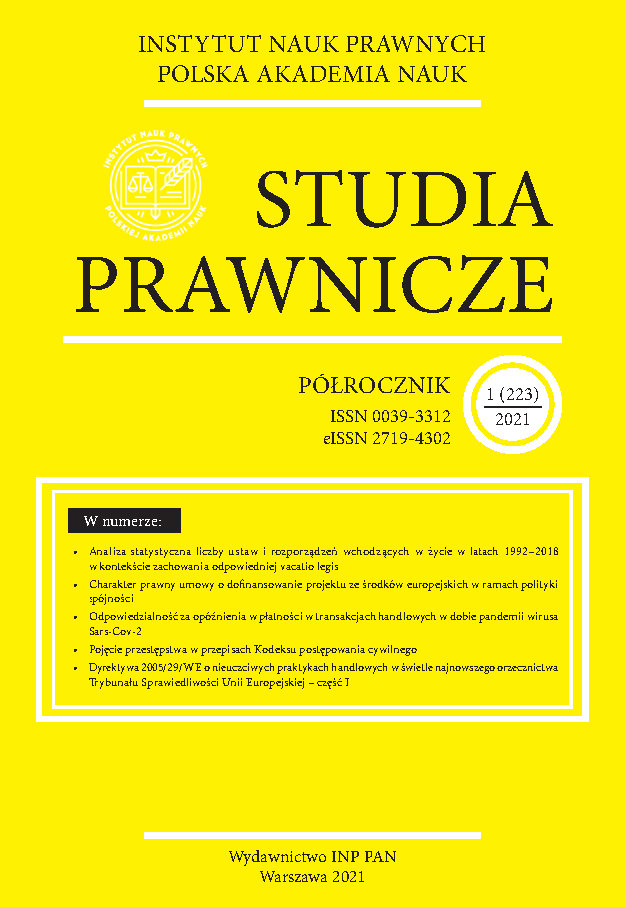Tendencje harmonizacyjne w prawie konsumenckim Unii Europejskiej
Harmonisation tendencies in European Consumer Law
Author(s): Aleksandra Kunkiel-KryńskaSubject(s): Law, Constitution, Jurisprudence
Published by: Instytut Nauk Prawnych PAN
Keywords: European Consumer Law; harmonisation of law; European Union; consumer protection
Summary/Abstract: The aim of this article is to examine the ongoing process of harmonisation of consumer law in the European Union and a trend away from minimum harmonisation in consumer law towards full (complete, maximum) harmonisation. In the field of consumer protection, the EU followed for a long time a minimum harmonisation approach and directives were based on this particular method of harmonisation. Over the last years, the EU policy on consumer protection has shifted from minimum to full harmonisation. Whereas minimum harmonisation allows Member States to adopt more protective rules, full harmonisation does not allow Member States to deviate from directives at all. This way, full harmonisation should guarantee that one uniform set of rules applies in the whole EU and directives resemble directly applicable regulations. In theory, this should contribute to legal certainty for both consumers and businesses. However, in practice, this is undoubtedly controversial. Legal doctrine indicates certain problems i.e. full harmonisation directives give rise to serious implementation problems at the national level and cause risk of decomposition of national legal orders.
Journal: Studia Prawnicze
- Issue Year: 191/2012
- Issue No: 2
- Page Range: 67-102
- Page Count: 36
- Language: Polish

